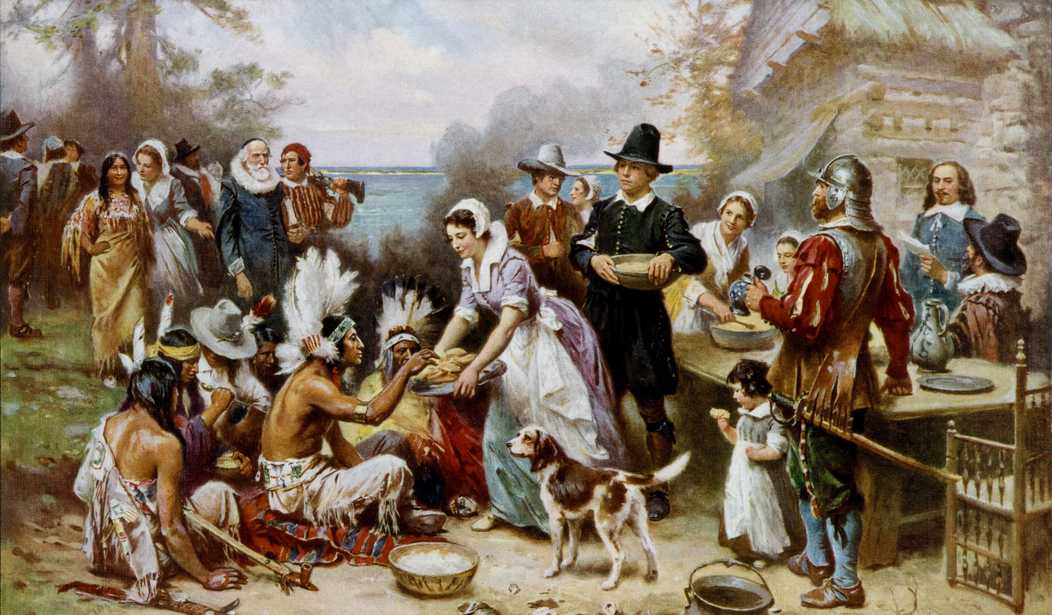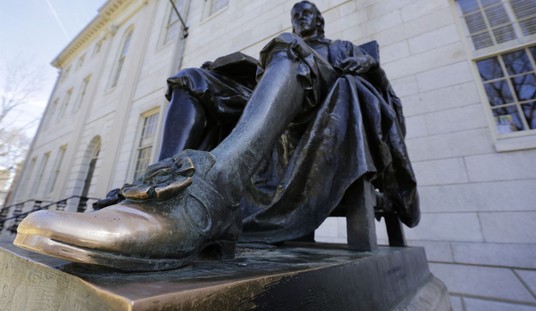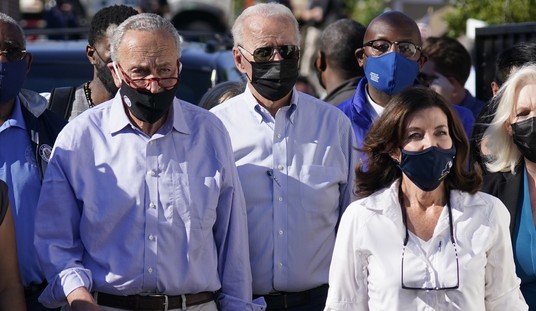There are few things more amusing than watching the left contort themselves attempting to bootstrap an image that they imagine appeals to the mouth-breathing, knuckle-dragging, WalMart-shopping, rednecks out in fly-over country into whatever their pet cause du jour is. What makes this impulse so cute is the idea that if they relate to us in terms we’ll understand they will make their point and when they use religious or historical stories you’re reminded of the “ugly American” abroad who is convinced if he talks slow and loud the idiot furrners will understand. We’ve been told over time that Jesus Christ, God Incarnate, would have approved of homosexual marriage. Never mind that a) God the Father outlawed homosexual acts, b) Jesus Christ defined marriage as one man and one woman, and c) for the premise to be true, two-thirds of the Holy Trinity had to lie to us at some point.
With the Syrian refugee crisis we’re seeing an industry erupt on the left claiming Jesus Christ was a refugee:
Via Cosmopolitan’s “senior political writer” (who knew such a thing existed, I thought they just wrote about sexual positions):
This refusing to offer refuge to fleeing Syrians reminds me of a story, something about a pregnant couple and innkeepers w/ no room? Anyone?
— Jill Filipovic (@JillFilipovic) November 17, 2015
Via POLITICO’s editorial director
Innkeeper turns away Levantine refugees, invites pregnant mother to stay in the barn with farm animals.
— Blake Hounshell (@blakehounshell) November 16, 2015
While you can make a loose case for Joseph, Mary, and their infant being refugees (three people fleeing Herod’s henchmen by going to a different part of the same Roman Empire aren’t really analogous to the Syrian refugee problem) during the Flight to Egypt, in the case of The Nativity, Joseph was merely traveling to fulfill his requirement for a Roman census. They weren’t foreigners, they weren’t suicide bombers, they weren’t really turned away. I’ve stayed in my car because I couldn’t get a motel room at the Outer Banks. I was not a refugee. (The ultimate demolition of the Jesus was a refugee story is in The Federalist.)
Now we have the Pilgrim’s pulled into the fray by Huffington Post: This Thanksgiving, Remember America’s Pilgrims Were Refugees, Too
As you prepare for your Thanksgiving Day feast, and the awkward conversations about politics sure to come with that one particular family member, it’s worth keeping in mind that the U.S. has a long history of taking in refugees.
Some of the first pilgrims to settle on America’s shores were Europeans who fled persecution in their home countries. When the Mayflower pilgrims landed in New England in the early 17th century, they established a harvest celebration that would later become known as Thanksgiving by sitting down with Native Americans gracious enough to share their land and way of life.
(As a brief aside, does anyone other than a leftwing douche actually develop talking points so they can win political arguments with rarely seen relatives at Thanksgiving? Isn’t life too short for that kind of douchebaggery? Has this guy started to wonder yet why he doesn’t get invitations to family events?)
As a matter of historical fact, the Pilgrims voluntarily left England for the Netherlands about a generation prior to the establishment of Plymouth colony. They left the Netherlands with the cooperation and blessing of the London Company, an enterprise operating under a royal charter from King James I, for territory claimed by England. When they arrived in Massachusetts Bay, they established commercial and cultural ties with England. They considered themselves to be Englishmen until the late 18th century and all that messiness. When the Cromwell-led English Civil War broke out, many men from Massachusetts returned to England and joined the Parliamentary Army.
The most readable history of the Pilgrims as an colonist population is probably in found in Douglas Hackett Fischer’s Albion’s Seed.
There are parallels. Like the Syrians, the Pilgrims were not forced to leave their sanctuary (in either Turkey or the Netherlands). Like the Syrians, the Pilgrims had a different language, religion, customs, and culture than the Indians. Like the Syrians, the Pilgrims preferred their own ethnic enclave to assimilation and wanted their religion and laws to be supreme in that enclave. And, as the Indians found out, the Pilgrims were more than able to use violence to achieve their aims.
More to the point, the colonization of Massachusetts and Virginia serves as a cautionary tale on the perils of unlimited illegal immigration and a doing craptacular job of screening “refugees” before offering them asylum. In the refugee context, we would do well to examine this from the Indian point of view.














Join the conversation as a VIP Member